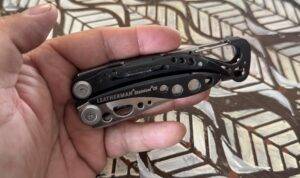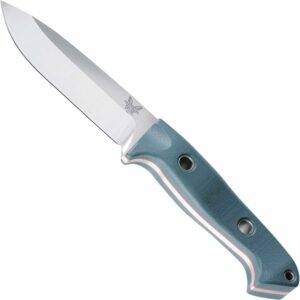When it comes to camping, having the right gear can make all the difference in your experience. Whether you’re a seasoned camper or just starting out, having the right equipment can ensure that you stay comfortable, safe, and prepared for any situation. In this post, we will cover the different categories of gear that are essential for a successful camping trip.
Tent: Your Home Away from Home
One of the most important pieces of gear for camping is a tent. Tents come in a variety of sizes and styles, so it’s important to choose one that fits your needs. If you’re camping alone or with a partner, a smaller tent will suffice. However, if you’re camping with a larger group or need extra space for gear, a larger tent may be necessary.
When choosing a tent, consider the climate and weather conditions you’ll be camping in. If you’re camping in colder temperatures, look for a tent with good insulation and a rainfly to keep you dry. If you’re camping in warmer temperatures, look for a tent with good ventilation to keep you cool.
Setting up and maintaining your tent is also important. Make sure to practice setting up your tent before your trip so that you’re familiar with the process. When setting up your tent, choose a flat and level area away from any potential hazards such as trees or rocks. To maintain your tent, make sure to clean it regularly and store it properly when not in use.
Sleeping Bags and Pads: Stay Warm and Comfortable
Another essential piece of gear for camping is a sleeping bag and pad. Sleeping bags come in different temperature ratings and insulation types, so it’s important to choose one that suits the climate you’ll be camping in. If you’re camping in colder temperatures, look for a sleeping bag with a lower temperature rating and good insulation. If you’re camping in warmer temperatures, look for a sleeping bag with a higher temperature rating and good ventilation.
Sleeping pads are also important for staying comfortable while sleeping. They provide insulation from the ground and cushioning for your body. When choosing a sleeping pad, consider the thickness and material. Thicker pads provide more cushioning but may be bulkier to carry. Foam pads are lightweight and provide good insulation, while inflatable pads are more compact but may require more effort to inflate.
To stay warm and comfortable while sleeping, make sure to dress in layers and wear a hat to retain body heat. It’s also a good idea to bring extra blankets or a sleeping bag liner for added warmth. Additionally, make sure to set up your sleeping area on a flat and level surface away from any potential hazards.
Cooking Gear: Fuel Your Adventures
Cooking gear is essential for fueling your adventures while camping. There are different types of cooking gear available, including stoves, cookware, and utensils. When choosing a stove, consider the type of fuel it uses and the size and weight. Propane stoves are convenient and easy to use, while liquid fuel stoves are more versatile but require more maintenance.
When choosing cookware, consider the size and material. Stainless steel cookware is durable but heavier, while aluminum cookware is lightweight but may not be as durable. It’s also important to choose utensils that are durable and easy to clean.
When cooking while camping, make sure to follow safety precautions such as keeping flammable materials away from the stove and using pot holders or gloves when handling hot cookware. It’s also important to clean up after cooking to prevent attracting wildlife.
Water Filtration Systems: Stay Hydrated and Safe
Staying hydrated while camping is crucial for your health and safety. There are different types of water filtration systems available, including water filters, purifiers, and chemical treatments. When choosing a water filtration system, consider the type of contaminants it removes and the size and weight. Water filters are effective at removing bacteria and protozoa, while water purifiers are effective at removing viruses. Chemical treatments such as iodine or chlorine tablets are lightweight and easy to use but may leave a taste in the water.
To stay hydrated and safe while camping, make sure to drink plenty of water and avoid drinking from untreated water sources such as rivers or lakes. It’s also important to properly clean and maintain your water filtration system to ensure its effectiveness.
Lighting: Illuminate Your Campsite

Having proper lighting is essential for illuminating your campsite and ensuring your safety while camping. There are different types of lighting available, including lanterns, headlamps, and flashlights. When choosing lighting, consider the brightness and battery life. LED lights are energy-efficient and provide bright illumination.
When setting up lighting at your campsite, make sure to place lanterns or lights in a central location to provide even illumination. It’s also a good idea to have a headlamp or flashlight for personal use when walking around at night.
Navigation Tools: Find Your Way in the Wilderness
Having navigation tools is important for finding your way in the wilderness while camping. There are different types of navigation tools available, including maps, compasses, and GPS devices. When choosing navigation tools, consider the accuracy and reliability. Maps are essential for planning your route and understanding the terrain, while compasses are important for determining direction.
When using navigation tools while camping, make sure to familiarize yourself with the area and plan your route in advance. It’s also important to have a backup navigation method in case of equipment failure.
First Aid Kit: Be Prepared for Emergencies
Having a first aid kit is crucial for being prepared for emergencies while camping. A basic first aid kit should include items such as bandages, antiseptic wipes, pain relievers, and tweezers. It’s also a good idea to include any necessary medications or personal items.
When using a first aid kit in case of emergencies, make sure to assess the situation and provide appropriate care. It’s important to seek medical attention for serious injuries or illnesses.
Clothing and Footwear: Dress for the Outdoors
Dressing appropriately for the outdoors is important for staying comfortable and protected while camping. It’s important to choose clothing and footwear that are suitable for the climate and weather conditions. When camping in colder temperatures, dress in layers and wear moisture-wicking and insulating materials. When camping in warmer temperatures, wear lightweight and breathable clothing.
It’s also important to wear sturdy and comfortable footwear that provides good traction and support. Make sure to break in new shoes before your camping trip to prevent blisters.
Backpacks and Daypacks: Carry Your Essentials
Having a backpack or daypack is essential for carrying your essentials while camping. There are different types of backpacks and daypacks available, including internal frame packs and external frame packs. When choosing a backpack or daypack, consider the size and weight capacity. It’s important to choose a pack that fits comfortably and distributes weight evenly.
When packing your essentials, make sure to pack lightweight and compact items. It’s also important to distribute weight evenly and pack heavier items closer to your back for better balance.
Camp Chairs and Tables: Relax and Enjoy the Outdoors
Having camp chairs and tables is important for relaxing and enjoying the outdoors while camping. There are different types of camp chairs and tables available, including folding chairs and portable tables. When choosing camp chairs and tables, consider the size and weight. It’s important to choose chairs that are comfortable and tables that are sturdy.
When setting up camp chairs and tables, make sure to place them on a flat and level surface. It’s also important to follow safety precautions such as not standing on chairs or tables.
Having the right gear for camping is essential for a successful and enjoyable experience. Whether it’s a tent, sleeping bag, cooking gear, water filtration system, lighting, navigation tools, first aid kit, clothing and footwear, backpacks and daypacks, or camp chairs and tables, each piece of gear plays a crucial role in ensuring your comfort, safety, and preparedness while camping. Investing in quality gear will not only enhance your camping experience but also provide peace of mind knowing that you’re well-equipped for any situation. So before your next camping trip, make sure to check off all the essential gear on your list.




